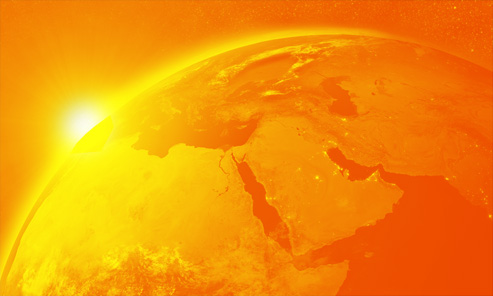Renewables in Saudi Arabia
Saudi Arabia has a rapidly growing population that places an ever-increasing pressure on the country’s non-renewable hydrocarbon resources. A study concluded that alternative, sustainable and reliable sources of energy for generating power and producing desalinated water should be introduced to reduce consumption of the nation’s fossil fuel reserves. It was also determined that a balanced energy mix of renewable and conventional energy is strategically important to Saudi Arabia’s long-term prosperity, energy security, and its leading position in the global energy market.
In 2019, the Renewable Energy Program Development Office (REPDO) set a target of 27.3 GW of renewables by 2023 and 58.7 GW by 2030. More recently, as part of the Vision 2030 initiative driving the collective commitment to address current and future energy and climate challenges, it set a target for the contribution of renewables to the global energy mix by 2030 to reach up to 50%.
REPDO will lead the development of 30% of the 58.7GW target through a bidding program organised by rounds, with the Public Investment Fund (PIF) acquiring the remainder through contracts negotiated directly with investors. In this regard, REPDO has already launched the first rounds of projects totalling over 3GW. With respect to PIF, the Sudair 2GW solar PV plant is currently under construction.
In parallel with the above, within Saudi Arabia's Vision 2030 plan we find the NEOM and The Red Sea Development projects, both of which have already started.

The city of NEOM plans to be a self-sustainable city and a carbon-free renewable energy hub. NEOM has some of the region's richest natural resources in solar (20 MJ/m2) and wind energy (average 6.2 m/s), making it the largest project (4 GW) to implement the energy transformation the country aspires to.
On the other hand, The Red Sea Development Company (TRSDC), the world's most ambitious regenerative tourism project, will be the largest tourism project in the world to be powered exclusively by renewable energy.
Last, there are several initiatives coming from industrial consumers signing private PPAs to improve their energy costs.
Lately, the Saudi Industrial Development Fund (SIDF) announced the creation of a 28 BUSD loan to finance renewable energy component manufacturing and renewable energy project developers.

